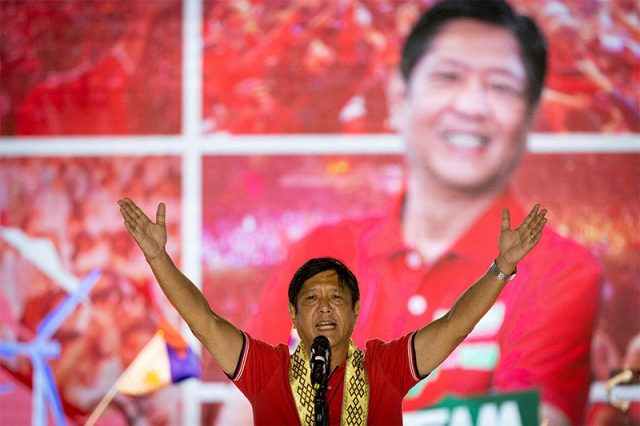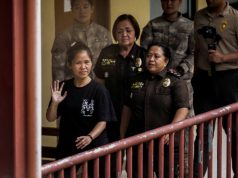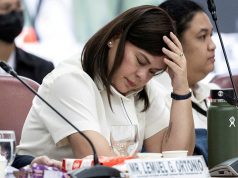
MANILA— The son and namesake of late dictator Ferdinand Marcos will be sworn in as president of the Philippines on Thursday, completing a stunning comeback for one of Asia’s most famous political dynasties, 36 years after it was ousted in a popular uprising.
RELATED: Fall and rise: Marcos family back in power in the Philippine
Marcos Jr scored a rare landslide victory in last month’s election, helped by what his critics see as a decades-long effort to alter public perceptions of a family that lived lavishly at the helm of one of the world’s most notorious kleptocracies.
Due to pandemic precautions, Marcos, better known as “Bongbong”, will take his oath before a judge at Manila’s National Museum instead of the traditional Quirino Grandstand, where past presidents including his father were sworn in.
The ceremony will be “solemn and simple”, his transition team said, reflecting difficult times brought by COVID-19.
The elder Marcos ruled the Philippines for two decades from 1965, almost half of it under martial law, helping him to extend his grip on power until his overthrow and his family’s retreat into exile during a 1986 “people power” revolution.
Thousands of Marcos opponents were jailed, killed or disappeared during his rule, and the family name became synonymous with cronyism, extravagance and the disappearance of billions of dollars from state coffers. The Marcos family has rejected accusations of embezzlement.
Hundreds of activists are expected to protest against the inauguration of Marcos Jr, 64, angered by a campaign buoyed by a powerful network of supporters and social media influencers determined to debunk historical narratives of the Marcos era.
The former senator and congressman campaigned on the slogan “together, we shall rise again”, invoking nostalgia for his father’s rule, which his family and supporters have portrayed as a golden age for the Philippines, a former U.S. colony.
A last-ditch bid by activists to thwart Marcos, among them victims of persecution under martial law, failed on Tuesday when the Supreme Court dismissed petitions seeking to disqualify him for tax offenses decades ago.
READ: Supreme Court rejects last bid to thwart incoming president Marcos
Voters are counting on him to deliver on pledges to create jobs and bring down consumer prices in a country of 110 million people, nearly a quarter of whom live on less than $2 per day.
He has promised to hit the ground running and has even appointed himself agriculture minister, citing the urgent need to boost production to prevent food shortages and help manage prices.
“Marcos’s number one priority will be, and should be, economic recovery over the next six months and first year,” said Richard Heydarian, an author, columnist and academic who specializes in politics.
“That will set the tone for his administration for the years to come.”
—Reporting by Karen Lema; Editing by Martin Petty









